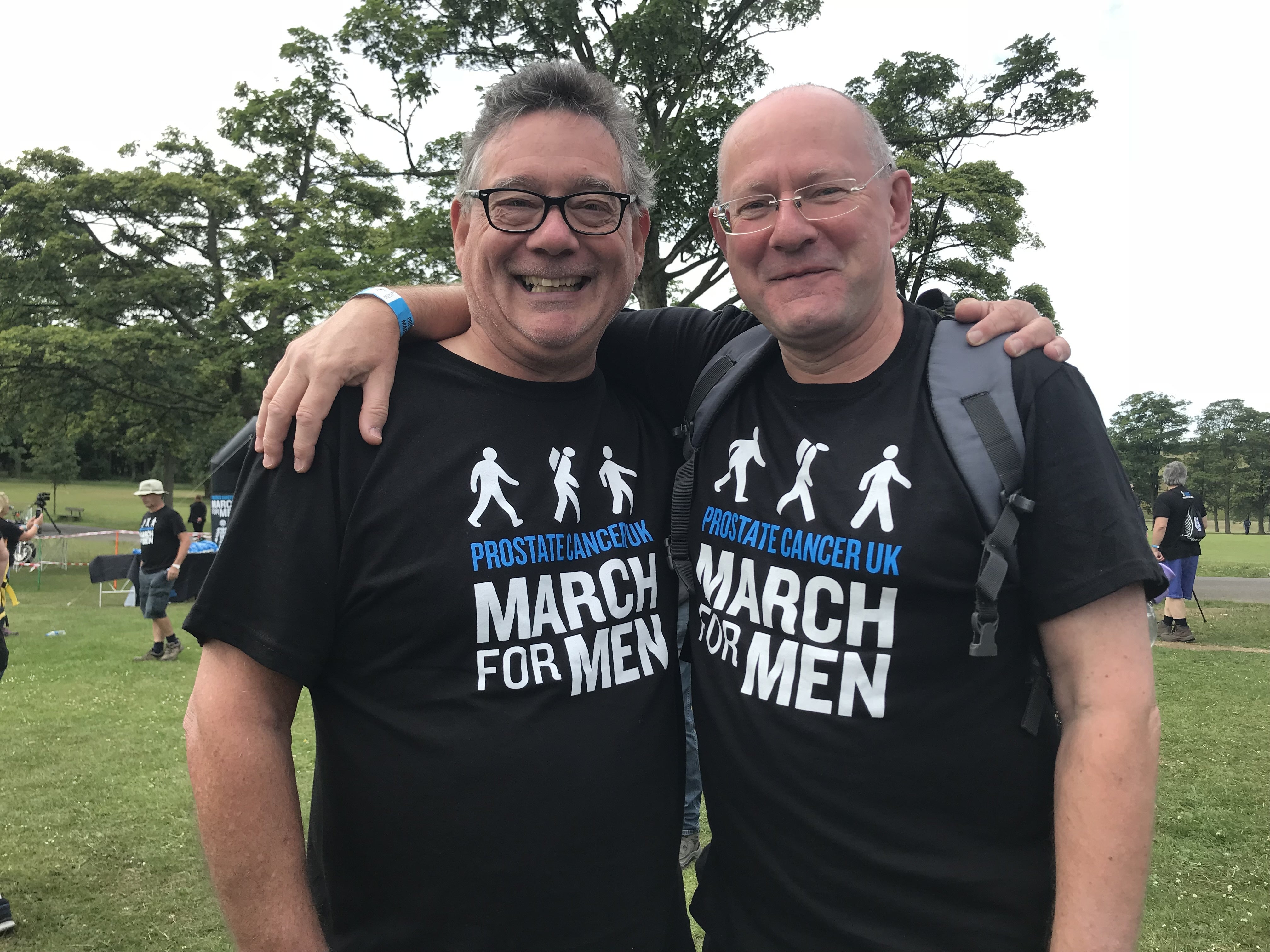Football friends reunite for charity walk after four diagnosed with same cancer
Four former players of Cookridge Rangers FC in Leeds have been affected by the most common cancer in men over the past seven years.

Your support helps us to tell the story
From reproductive rights to climate change to Big Tech, The Independent is on the ground when the story is developing. Whether it's investigating the financials of Elon Musk's pro-Trump PAC or producing our latest documentary, 'The A Word', which shines a light on the American women fighting for reproductive rights, we know how important it is to parse out the facts from the messaging.
At such a critical moment in US history, we need reporters on the ground. Your donation allows us to keep sending journalists to speak to both sides of the story.
The Independent is trusted by Americans across the entire political spectrum. And unlike many other quality news outlets, we choose not to lock Americans out of our reporting and analysis with paywalls. We believe quality journalism should be available to everyone, paid for by those who can afford it.
Your support makes all the difference.A football friendship forged more than 50 years ago has seen a clutch of players affected by prostate cancer – and their teammates – come together to raise funds.
Four alumni of Cookridge Rangers FC in Leeds have been affected by the most common cancer in men over the past seven years.
The squad will reunite for the fourth time next month for one of Prostate Cancer UK’s March for Men walking events.
Goalkeeper Glyn Jones, 65, was diagnosed in March 2015.
At a reunion event, Mr Jones was left wondering about the health of the club’s manager Howard Smith after chatting to him.
He said: “Shortly after I had my prostate removed in September 2015, we all met for a reunion. I’d say in that scenario there are two types of guys.
“Those who ask how you are and then follow up with ‘do you want a beer’, and those who ask more than two questions, and dig a bit deeper.
“You wonder if any of those might have it, or if they are worried about it, and Howard was one of those.
“We talked for a long time about my situation and what I’d been through, and when I got home I remember saying to my wife, ‘I think he might have prostate cancer’.
“I rang him and asked if he was okay and it all flowed from there.”
Cookridge Rangers were formed in the 1970s as a group of lads who had played on the local recreation ground from the age of 12. They joined the Leeds Sunday League around four years later.
Mr Smith said: “I guess I felt we were too old to be using jumpers for goalposts at 16/17 so I cast the net a little wider.
“I was manager, secretary, coach, treasurer, kit washer, you name it I did it; the lads just had to turn up.”
Mr Smith, 65, had been diagnosed in September 2016 and following the call from Mr Jones, he opened up to his former keeper about his condition.
“The lads showed up; it’s as simple as that,” Mr Smith said. “When we played, what made us special was we were never the best but we were always there for each other.”
He has since paid that support forward after news emerged of two other squad members affected by the disease, former left-back Arthur Bateson, 68, and ex-treasurer and club secretary Brian Locke, 63.
Ahead of the fourth March for Men walk, the team gathered at Roundhay Park in Leeds to showcase a new bench remembering and celebrating men affected by prostate cancer, including Mr Smith and Mr Jones.
Mr Jones added: “Prostate cancer isn’t just about people who die, it’s about how groups of good mates come through it together.
“It’s changed my life and my perspective on life. When you’ve had a scare that could have ended in dire circumstances, you realise you are a mere mortal and not impervious to this.
“The more you look around, the more you start to see people affected. I’m grateful I’m still around and am happy to give up my time to come. It’s also lovely to talk to other people about the journey that they’ve been on.”
March for Men events take place at Cannon Hill Park, Birmingham, on June 11, before moving to Tollcross Park, Glasgow, on June 12, London’s Queen Elizabeth Olympic Park on June 18, and Roundhay Park, Leeds, on June 19. More details can be found at marchformen.org.